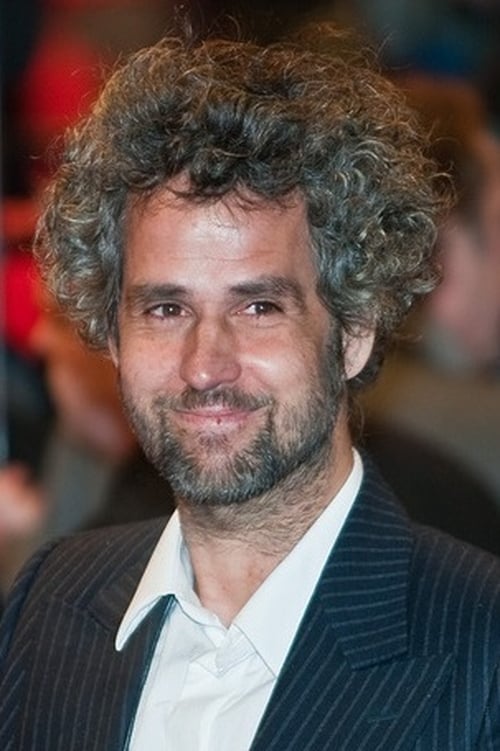
Using unpublished and newly digitalised archive footage and film material, Bettina Böhler has brilliantly assembled this film about the life and work of the exceptional artist Christoph Schlingensief, who died in 2010.

Volksbühne am Rosa-Luxemburg-Platz 1992-2017. The end of the GDR gave rise to new artistic freedoms in reunited Berlin. Shortly after the fall of the Wall, rebel director Frank Castorf was appointed artistic director of the Volksbühne. His way of working altered the public’s perception of this theater. The chronological history of the Castorf era between 1992 and 2017 is told here in excerpts from the productions and in a series of conversations conducted on the long sofa in the theater's foyer.

Director of Photography
Documentation about Christoph Schlingensief's legendary election campaign. With his theater and art actions, as a filmmaker and opera director, Christoph Schlingensief (1960–2010) shaped cultural and political discourse in Germany over two decades. The party “Chance 2000” was Schlingensief's biggest, most public project up to that point. For the 1998 general election Schlingensief organized an “election campaign circus“ in Berlin and founded the party Chance2000. This is an ecstatic piece of political education and a tale of a party’s life and survival.

Director
Documentation about Christoph Schlingensief's legendary election campaign. With his theater and art actions, as a filmmaker and opera director, Christoph Schlingensief (1960–2010) shaped cultural and political discourse in Germany over two decades. The party “Chance 2000” was Schlingensief's biggest, most public project up to that point. For the 1998 general election Schlingensief organized an “election campaign circus“ in Berlin and founded the party Chance2000. This is an ecstatic piece of political education and a tale of a party’s life and survival.

himself
Documentation about Christoph Schlingensief's legendary election campaign. With his theater and art actions, as a filmmaker and opera director, Christoph Schlingensief (1960–2010) shaped cultural and political discourse in Germany over two decades. The party “Chance 2000” was Schlingensief's biggest, most public project up to that point. For the 1998 general election Schlingensief organized an “election campaign circus“ in Berlin and founded the party Chance2000. This is an ecstatic piece of political education and a tale of a party’s life and survival.

Writer
The movie version of Christoph Schlingensief's stageplay.

Director
The movie version of Christoph Schlingensief's stageplay.

Himself
Documentary satire about a project by Christoph Schlingensief: Ten years after his TV project "Talk 2000", Schlingensief started to work on a new talk show – at least that was what he claimed. But in reality, it was obvious that the pilot episodes he produced would never be broadcasted. Nevertheless, all celebrities from the political and cultural sphere, Schlingensief had requested, accepted his invitation, including the filmmaker Oskar Roehler, the televangelist Jürgen Fliege, the politician Claudia Roth, or the rapper Sido. It is beyond question, that the talk show panel took an unconventional course directly from the start – and was soon threatening to turn into an uproar.

Director
Originally conceived as a film about 9/11, Richard Wagner, and the warrior Hagen von Tronje, to be shot in the German southwest African colony of Lüderitz, Namibia, The African Twin Towers instead turned into an unusually personal and absorbing documentary about an incomplete film and Schlingensief’s art in general.

Director of Photography

Screenplay

Director

Himself
Interview with Christoph Schlingensief on his films. Including many film clips.
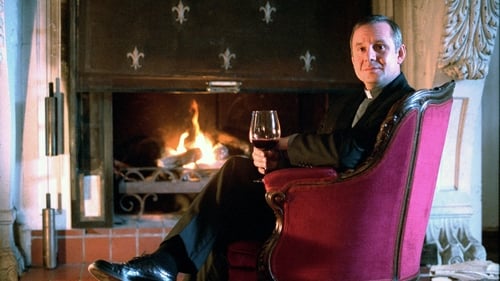
Opernregisseur
A man who accused a catholic bishop of abusing him when he was a child dies in the Austrian city Salzburg. Everyone except his widow and the eccentrical detective Simon Brenner keeps silent and believes that the man killed himself.

Screenplay
As stated in the opening titles and at the end Freakstars 3000 is supposed to be a commentary on the problems of the non-disabled people. The more I was shocked about how the disabled were depicted in this film the more I started to realize that in every non-disabled TV counterpart of this show (German TV shows like "Popstars" or "Friedmann" or the home shopping channels) its mentally "non-handicapped" participants are treated in a completely identical way: The total prostitution of the mind in front a huge TV audience at the expense of one's most important gifts one should hang on to: dignity. On the other hand one could completely understand people who are furious about "exploiting" these handicapped persons. But that's what Schlingensief's works are all about: shock people and don't care about those who cannot or will not try to get the message (if there is one).

Director
As stated in the opening titles and at the end Freakstars 3000 is supposed to be a commentary on the problems of the non-disabled people. The more I was shocked about how the disabled were depicted in this film the more I started to realize that in every non-disabled TV counterpart of this show (German TV shows like "Popstars" or "Friedmann" or the home shopping channels) its mentally "non-handicapped" participants are treated in a completely identical way: The total prostitution of the mind in front a huge TV audience at the expense of one's most important gifts one should hang on to: dignity. On the other hand one could completely understand people who are furious about "exploiting" these handicapped persons. But that's what Schlingensief's works are all about: shock people and don't care about those who cannot or will not try to get the message (if there is one).

Gynaecologist
A great mosaic, a labyrinth of scenes, dialogue splinters, interviews, portraits of people surrounding Hamlet and wanting to be part of his story.

Himself
FOREIGNERS OUT! SCHLINGENSIEFS CONTAINER is a thrilling, insightful, funny chronicle and reflection of one of he biggest public pranks and acts of art terrorism ever committed. Austria 2000: Right after the FPÖ under Jörg Haider had become part of the government, the first time an extreme right wing party became state officials after WW2, infamous German shock director Christoph Schlingensief showed a very unique form of protest. Realising public xenophobia and the new hate politics in the most drastic ways possible, he installed a public concentration camp right in the middle of Vienna's touristic heart, right beside the picturesque opera where hundreds of tourists and locals pass by daily. And it was no concentration camp you had ever feared to return from the old times, but one that cynically reflected our new multimedia culture. Satirising reality TV shows, "Big Brother" especially, a dozen asylum seekers were surveilled by a multitude of cameras, could be fed and watched by.

Himself
A provocative and ironic pamphleteering documentary about the making of Christoph Schlingensief’s Nazi-'Hamlet’ (2001). Both a media event and a form of political action Schlingensief let ex-neo-Nazis play themselves. His provocation in so-called Nazi-free Switzerland was not appreciated and when he added fuel to the flames by calling for the local political party SVP to be banned, his media offensive made front-page news far beyond Switzerland.

Writer
A provocative and ironic pamphleteering documentary about the making of Christoph Schlingensief’s Nazi-'Hamlet’ (2001). Both a media event and a form of political action Schlingensief let ex-neo-Nazis play themselves. His provocation in so-called Nazi-free Switzerland was not appreciated and when he added fuel to the flames by calling for the local political party SVP to be banned, his media offensive made front-page news far beyond Switzerland.

Self
Feature documentary about Christoph Schlingensief's political party/art project "Chance 2000".
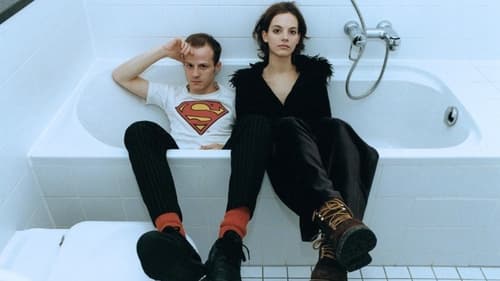
A young Berlin couple travel to a friend's place for the celebration of Silvester and New Year's Eve. During that period, we witness today's juvenile sub-culture, especially the ways of keeping a partnership - or breaking it up in between.
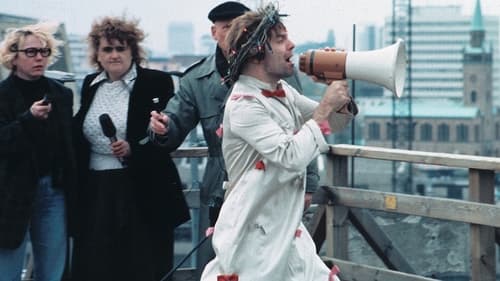
Screenplay
An eccentric homage to the Rainer Werner Fassbinder days of German filmmaking.

Director
An eccentric homage to the Rainer Werner Fassbinder days of German filmmaking.
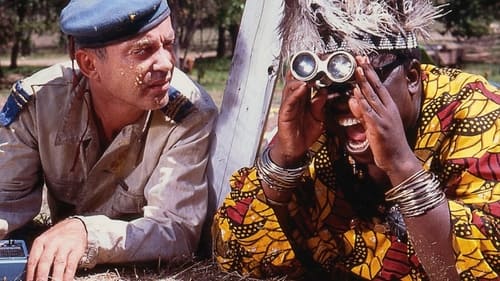
Writer
Africa - Land of the evershining sun, German soldiers fulfilling a UN mission. For General Brenner a dream comes true: Here, where the people are still native and simple, the German can prove his abilities. But then the virgin wife of Brenner gives birth to her first child. Is it the new Messias? But what is a Messias good for, if the UN is already there?

Director
Africa - Land of the evershining sun, German soldiers fulfilling a UN mission. For General Brenner a dream comes true: Here, where the people are still native and simple, the German can prove his abilities. But then the virgin wife of Brenner gives birth to her first child. Is it the new Messias? But what is a Messias good for, if the UN is already there?
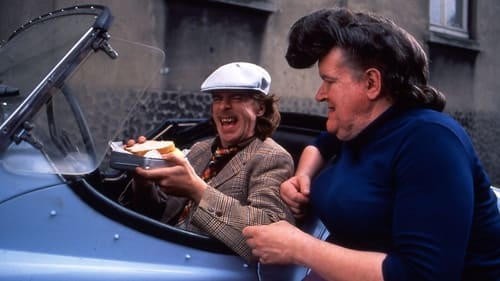
Director
The funny clown Bratislav Metulskie is found dead in circus "Apollo". The retired commissioner 00 Schneider is asked to assume control of the case. Schneider and his aged sidekick Körschgen investigate to find the murderer.

Director of Photography
The funny clown Bratislav Metulskie is found dead in circus "Apollo". The retired commissioner 00 Schneider is asked to assume control of the case. Schneider and his aged sidekick Körschgen investigate to find the murderer.

Writer
A mockumentary directed by Christoph Schlingensief.

Director
A mockumentary directed by Christoph Schlingensief.

Interviewer / Italian / Barlady
A mockumentary directed by Christoph Schlingensief.
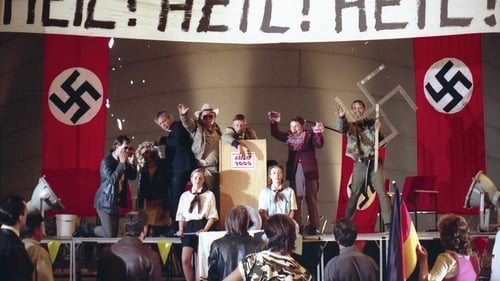
Michel aus Lünen
Germany, right after the re-unification. The people are out of control, blind hatred towards immigrants is common sense. In this time, a social-worker, with the mission to bring a Polish family to their destination (an immigration camp in a little provincial town called Rassau), gets kidnapped just as the family. Chief inspector Koern and his girl-friend start to investigate in this matter in Rassau, exploring a world of obsessive sex, mislead lust and an over-whelming irrational love to the German nation, infiltrating anyone's mind. Rascism doesn't start with shaved hair and boots but rather in the middle of society itself...

Writer
Germany, right after the re-unification. The people are out of control, blind hatred towards immigrants is common sense. In this time, a social-worker, with the mission to bring a Polish family to their destination (an immigration camp in a little provincial town called Rassau), gets kidnapped just as the family. Chief inspector Koern and his girl-friend start to investigate in this matter in Rassau, exploring a world of obsessive sex, mislead lust and an over-whelming irrational love to the German nation, infiltrating anyone's mind. Rascism doesn't start with shaved hair and boots but rather in the middle of society itself...

Director
Germany, right after the re-unification. The people are out of control, blind hatred towards immigrants is common sense. In this time, a social-worker, with the mission to bring a Polish family to their destination (an immigration camp in a little provincial town called Rassau), gets kidnapped just as the family. Chief inspector Koern and his girl-friend start to investigate in this matter in Rassau, exploring a world of obsessive sex, mislead lust and an over-whelming irrational love to the German nation, infiltrating anyone's mind. Rascism doesn't start with shaved hair and boots but rather in the middle of society itself...

Knecht
Axel is 14 years old, male prostitute, living in Düsseldorf. His mother drinks and her friends abuses him. He is sent to a bar to pick up customers. There he meets Karl-Heinz, and a loving relationship begins.
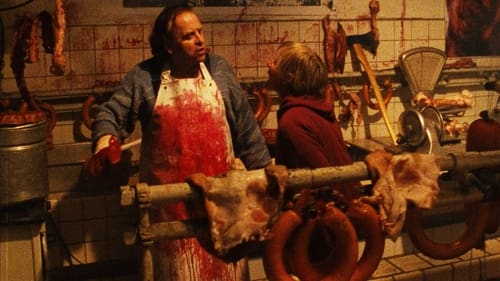
Director of Photography
Taking place around the German reunification of 1990, a group of East Germans cross the border to visit West Germany and get slaughtered by a psychopathic cannibal family who want to turn them into sausages.

Writer
Taking place around the German reunification of 1990, a group of East Germans cross the border to visit West Germany and get slaughtered by a psychopathic cannibal family who want to turn them into sausages.

Director
Taking place around the German reunification of 1990, a group of East Germans cross the border to visit West Germany and get slaughtered by a psychopathic cannibal family who want to turn them into sausages.

Assistant Director
Sometime during the 19th century in Switzerland: After a delirious night of drinking, three herdsmen who are all alone in the alps with their kettle, create a female doll from cloth and a strangely formed wooden root. When their creation comes to life in form of an evil and beautiful female demon, they have to fear for their lives...
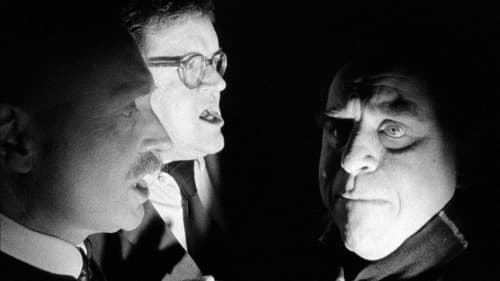
Editor
On 30 April 1945, dictator Adolf Hitler, his wife Eva Braun, and prominent members of the Third Reich live out their final hour in the Führerbunker.

Writer
On 30 April 1945, dictator Adolf Hitler, his wife Eva Braun, and prominent members of the Third Reich live out their final hour in the Führerbunker.

Director
On 30 April 1945, dictator Adolf Hitler, his wife Eva Braun, and prominent members of the Third Reich live out their final hour in the Führerbunker.
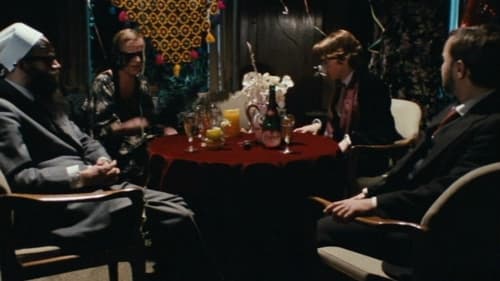
Producer
Mutters Maske aka Mother's Mask is a free adaptation of the film Opfergang (1944) aka The Great Sacrifice of Veit Harlan. Schlingensief exposes his source material's dangerous proximity to kitsch and camp by reducing the genre conventions known from Harlan, Sirk, Fassbinder & Co to the level of a daily soap: set within a noble family from the German Ruhr, Schlingensief's story revolving about Willy von Mühlenbeck's tragic love to terminally ill neighbor girl Äls (Susanne Bredehöft) and the inheritance intrigues by his evil brother Martin von Mühlenbeck (Helge Schneider) creaks with melodramatic devices and self-conscious dialogues. Rather than being a mere spoof, "Mother's Mask" is perhaps Schlingensief's purest black comedy.

Editor
Mutters Maske aka Mother's Mask is a free adaptation of the film Opfergang (1944) aka The Great Sacrifice of Veit Harlan. Schlingensief exposes his source material's dangerous proximity to kitsch and camp by reducing the genre conventions known from Harlan, Sirk, Fassbinder & Co to the level of a daily soap: set within a noble family from the German Ruhr, Schlingensief's story revolving about Willy von Mühlenbeck's tragic love to terminally ill neighbor girl Äls (Susanne Bredehöft) and the inheritance intrigues by his evil brother Martin von Mühlenbeck (Helge Schneider) creaks with melodramatic devices and self-conscious dialogues. Rather than being a mere spoof, "Mother's Mask" is perhaps Schlingensief's purest black comedy.

Director of Photography
Mutters Maske aka Mother's Mask is a free adaptation of the film Opfergang (1944) aka The Great Sacrifice of Veit Harlan. Schlingensief exposes his source material's dangerous proximity to kitsch and camp by reducing the genre conventions known from Harlan, Sirk, Fassbinder & Co to the level of a daily soap: set within a noble family from the German Ruhr, Schlingensief's story revolving about Willy von Mühlenbeck's tragic love to terminally ill neighbor girl Äls (Susanne Bredehöft) and the inheritance intrigues by his evil brother Martin von Mühlenbeck (Helge Schneider) creaks with melodramatic devices and self-conscious dialogues. Rather than being a mere spoof, "Mother's Mask" is perhaps Schlingensief's purest black comedy.

Writer
Mutters Maske aka Mother's Mask is a free adaptation of the film Opfergang (1944) aka The Great Sacrifice of Veit Harlan. Schlingensief exposes his source material's dangerous proximity to kitsch and camp by reducing the genre conventions known from Harlan, Sirk, Fassbinder & Co to the level of a daily soap: set within a noble family from the German Ruhr, Schlingensief's story revolving about Willy von Mühlenbeck's tragic love to terminally ill neighbor girl Äls (Susanne Bredehöft) and the inheritance intrigues by his evil brother Martin von Mühlenbeck (Helge Schneider) creaks with melodramatic devices and self-conscious dialogues. Rather than being a mere spoof, "Mother's Mask" is perhaps Schlingensief's purest black comedy.

Director
Mutters Maske aka Mother's Mask is a free adaptation of the film Opfergang (1944) aka The Great Sacrifice of Veit Harlan. Schlingensief exposes his source material's dangerous proximity to kitsch and camp by reducing the genre conventions known from Harlan, Sirk, Fassbinder & Co to the level of a daily soap: set within a noble family from the German Ruhr, Schlingensief's story revolving about Willy von Mühlenbeck's tragic love to terminally ill neighbor girl Äls (Susanne Bredehöft) and the inheritance intrigues by his evil brother Martin von Mühlenbeck (Helge Schneider) creaks with melodramatic devices and self-conscious dialogues. Rather than being a mere spoof, "Mother's Mask" is perhaps Schlingensief's purest black comedy.

Assistant Director
A gloomy small town at peace with itself on the edge of a bizarre industrial landscape. The former night watchman of the industrial complex is discovered murdered. The police inspector in charge of the case soon sees a link between the murder and an ominous poison gas depot established at the end of World War II by a Nazi partisan group called The Werewolfs.

Director of Photography
"Stangenfieber" is an almost 30-year-old short movie which runs for nine minutes. It is the first directorial effort by Helge Schneider and came out shortly after "Johnny Flash". In this full feature, Schneider was not yet director and writer himself, but with "Stangenfieber", which sounds like some tropical illness, he took that past and should also be involved with these crucial aspects of filmmaking in pretty much every upcoming film starring himself.
Most of the cast in this little project are Schneider's pals and they have returned in other of his films later on, especially Peter Thoms, a longtime companion for the extravagant genius that is Helge Schneider. About "Stangenfieber", it is a movie probably even more experimental than "Johnny Flash". There is one aspect of this short movie, which occurs frequently in his films as well: men wearing drag and playing female characters, in this case a tutu. -http://www.imdb.com/title/tt2302835/reviews

Original Music Composer
Uma ilha deserta no Mar Báltico é governada pelo barão vampiresco Aunt Devil. Onde outrora a paz e a alegria moldavam as vidas dos ilhéus, agora reina desesperança e discórdia. Quando o verdadeiro amor de um casal ameaça o estado de tristeza da ilha, o barão sofre um ataque de nervos.

Editor
Uma ilha deserta no Mar Báltico é governada pelo barão vampiresco Aunt Devil. Onde outrora a paz e a alegria moldavam as vidas dos ilhéus, agora reina desesperança e discórdia. Quando o verdadeiro amor de um casal ameaça o estado de tristeza da ilha, o barão sofre um ataque de nervos.

Producer
Uma ilha deserta no Mar Báltico é governada pelo barão vampiresco Aunt Devil. Onde outrora a paz e a alegria moldavam as vidas dos ilhéus, agora reina desesperança e discórdia. Quando o verdadeiro amor de um casal ameaça o estado de tristeza da ilha, o barão sofre um ataque de nervos.

Screenplay
Uma ilha deserta no Mar Báltico é governada pelo barão vampiresco Aunt Devil. Onde outrora a paz e a alegria moldavam as vidas dos ilhéus, agora reina desesperança e discórdia. Quando o verdadeiro amor de um casal ameaça o estado de tristeza da ilha, o barão sofre um ataque de nervos.

Director
Uma ilha deserta no Mar Báltico é governada pelo barão vampiresco Aunt Devil. Onde outrora a paz e a alegria moldavam as vidas dos ilhéus, agora reina desesperança e discórdia. Quando o verdadeiro amor de um casal ameaça o estado de tristeza da ilha, o barão sofre um ataque de nervos.

Director of Photography
An exhilarating and amusing encyclopedic look at the "prehistory" of cinema. Werner Nekes charts the fascination with moving pictures which led to the birth of film, covering shadow plays, peep shows, flip books, flicks, magic lanterns, lithopanes, panoramic, scrolls, colorful forms of early animation, and numerous other historical artiffices. Working with these formats, early "producers" created melodramas, comedies, -- as well as lots of pornography -- anticipating most of the forms known today. Nekes probes these colorful toys and inventions in a rich and rewarding optical experience. Film Before Film is a bewildering assault of exotic (and sometimes erotic) images and illusions.

Director of Photography
Jurgen is an unknown electrician with a dream of pop stardom. His mother browbeats him into fame, while two managers compete for his contract. All Johnny really wants to do is get some sleep.
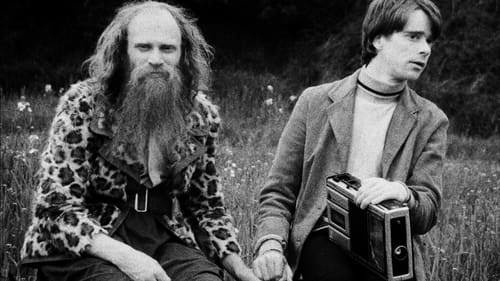
Producer
A traumatized young man, abused by his father, imagines himself as Adolf Hitler when dreaming of revenge. Schlingensief released this film, which follows no linear narrative structure, at a moment when right-leaning German intellectuals argued for a coming to terms of the country’s relation with its Nazi past. Schlingensief disagreed. (MoMA)

Director of Photography
A traumatized young man, abused by his father, imagines himself as Adolf Hitler when dreaming of revenge. Schlingensief released this film, which follows no linear narrative structure, at a moment when right-leaning German intellectuals argued for a coming to terms of the country’s relation with its Nazi past. Schlingensief disagreed. (MoMA)

Screenplay
A traumatized young man, abused by his father, imagines himself as Adolf Hitler when dreaming of revenge. Schlingensief released this film, which follows no linear narrative structure, at a moment when right-leaning German intellectuals argued for a coming to terms of the country’s relation with its Nazi past. Schlingensief disagreed. (MoMA)

Director
A traumatized young man, abused by his father, imagines himself as Adolf Hitler when dreaming of revenge. Schlingensief released this film, which follows no linear narrative structure, at a moment when right-leaning German intellectuals argued for a coming to terms of the country’s relation with its Nazi past. Schlingensief disagreed. (MoMA)

Director
This black and white silent film with music by Helge Schneider, starring Udo Kier as a vampire and Alfred Edel as an Indian chief was commissioned by the Filmmuseum Düsseldorf to inaugurate their cinema organ. The look and feel of the film stems from the silent film era, but the camp style and over use of clichéd characters bears the trade mark of Schlingensief all over. “I love all things kitsch, like opera, and I feel inspired by music. I was interested in silent film but not a great deal”, said the director.

Director
In MY WIFE IN FIVE, Schlingensief composes tracks and takes to a shimmering cinematic music piece. The playlist changes constantly between the styles, as if this record had a jump – Irving Berlin's This Is The Army, Mr. Jones, an Ave Maria Variation and Jacques Offenbach's world-famous Infernal Galop can be heard. Equally to the music the pictures also have scratches. The music film MY WIFE IN FIVE was created during a sound seminar by Christoph Schlingensief with students of the Hochschule für Gestaltung Offenbach. It already contains all forms of cinematic means and alienation, which he later used in his theatre and opera productions.

Producer
An early declaration of war on narrative cinema, using a barrage of visual and acoustic elements while at the same time juggling ironically - as he still does - with the term 'avant-garde'. A number of other preferences and obsessions were evident at an early stage, e.g. the mind-numbing habit of having his people stumbling and screaming around: life as a race track. His films likewise feature a lot of theatrical and cryptic outpourings. No wonder that they failed at the box office. No wonder either, however, that Schlingensief was attracted to theatre.

Writer
An early declaration of war on narrative cinema, using a barrage of visual and acoustic elements while at the same time juggling ironically - as he still does - with the term 'avant-garde'. A number of other preferences and obsessions were evident at an early stage, e.g. the mind-numbing habit of having his people stumbling and screaming around: life as a race track. His films likewise feature a lot of theatrical and cryptic outpourings. No wonder that they failed at the box office. No wonder either, however, that Schlingensief was attracted to theatre.

Director
An early declaration of war on narrative cinema, using a barrage of visual and acoustic elements while at the same time juggling ironically - as he still does - with the term 'avant-garde'. A number of other preferences and obsessions were evident at an early stage, e.g. the mind-numbing habit of having his people stumbling and screaming around: life as a race track. His films likewise feature a lot of theatrical and cryptic outpourings. No wonder that they failed at the box office. No wonder either, however, that Schlingensief was attracted to theatre.

Major Pater Hilf
An early declaration of war on narrative cinema, using a barrage of visual and acoustic elements while at the same time juggling ironically - as he still does - with the term 'avant-garde'. A number of other preferences and obsessions were evident at an early stage, e.g. the mind-numbing habit of having his people stumbling and screaming around: life as a race track. His films likewise feature a lot of theatrical and cryptic outpourings. No wonder that they failed at the box office. No wonder either, however, that Schlingensief was attracted to theatre.

Director
This is the first part of the little trilogy PHANTASUS MUSS ANDERS WERDEN; WHAT HAPPENED TO MAGDALENA JUNG?; and TUNGUSKA – DIE KISTEN SIND DA (1983/84). The first two shorts were firstly shown at a counter-event of the "Westdeutschen Kurzfilmtage" (short film festival) in 1983. This event was also connected with the slogan "Freedom for Christian S.", who was a popular anti-fascist at this time.

Director
Christoph Schlingensief puts an end to the misery of "new German film production" and at the same time kicks off a new start without stale romanticism and mysticism.

Director
An early short film by Christoph Schlingensief, that is already dealing with German bourgeoisie and reality tv.

Trumpet Player
A short directed by Christoph Schlingensief.

Producer
A short directed by Christoph Schlingensief.

Editor
A short directed by Christoph Schlingensief.

Screenplay
A short directed by Christoph Schlingensief.

Director
A short directed by Christoph Schlingensief.

Director
This is one of the short "crime movies", that the young Schlingensief shot with amateur actors and no budget in the 70´s. Mummys boy wants to get famous by shooting a movie with his friends - of course, everything goes wrong...

Director
Five camping youths see at night a ghostly woman, which leads them to the castle of Count Kaunitz, in what will reveal itself to be a gruesome trap. Schlingensief was 15 years old when making this film.

Director

Director
Mein 1. Film is the first short film shot by Schlingensief at the age of 8 with some “friends of the basement” and featuring a drama divided into three acts. Recurring elements of his cinematography such as narrative parody and cinema as a creative collective moment – already make their appearance in this very early piece. -http://videoex.ch/de/2016/programm/christoph-schlingensief-film-als-neurose/christoph-schlingensief-1-kurzfilme/mein-1-film-in-3-teilen/
